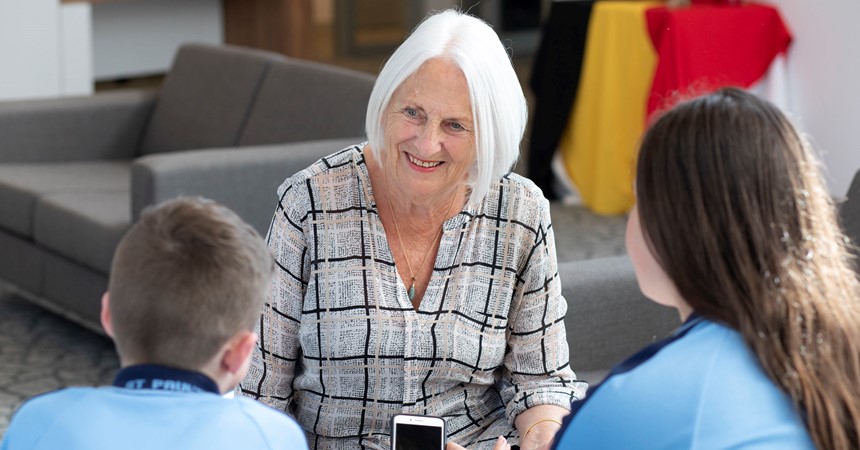Anne Maree Shipman is an Assistant Principal at St Paul’s Catholic College, Booragul, and concedes this statistic, although alarming, is not surprising.
“I’ve worked with adolescents in the education system for 31 years,” she says, “and youth mental health problems are very real.”
Ms Shipman says she has noticed a spike in issues plaguing youth and that the school’s psychologists are in high demand.
“Over the past four to five years, we’ve seen an increase in the number of students experiencing mental ill-health,” she says.
Emma Merlino is the co-ordinator of student wellbeing across the Diocese’s network of schools and says Ms Shipman’s observations of St Paul’s student cohort is not uncommon, with a particular increase in demand since the COVID-19 pandemic took hold.
“There has been a noticeable increase in students seeking counselling services this year, with many students presenting with significant distress.”
As the leader for Community and Wellbeing within the school, Ms Shipman and the team of Student Coordinators at St Paul’s have implemented several initiatives to help support students. Last month, the school supported the R U OK? Day through a week-long series of events that encouraged students to reach out for support and connect with each other.
St Paul’s Catholic College has also lent its support to the Black Dog Research Institute’s newly launched research project, the Future Proofing Study, which commences in 2021.
This is a ground-breaking initiative and aims to engage up to 10,000 Year 8 students and follow them over five years.
Kate Maston, Future Proofing Program Manager at the Black Dog Institute, says prevention programs reach out to young people before mental health problems take hold.
“We know 50 per cent of all mental health problems emerge in adolescence, yet teenagers are unlikely to get help until these problems have an impact on school attendance, academic results and relationships,” says Ms Maston.
The study is a world-first and plans to put teenagers’ smartphones to positive use to deliver preventive interventions on a large scale.
Students who elect to take part in the study will complete online surveys about their mental health and wellbeing at school. There are two surveys in Year 8, and then one each year until Year 12.
“Students will also use apps to teach them skills to manage their wellbeing, and to teach us about the earliest signs of changing mental health,” says Ms Maston.
Ms Merlino supports St Paul’s involvement in the institute’s study, which is part of the school’s overall strategy to proactively support students’ social and emotional wellbeing.
“The Black Dog programme offers a proactive way to both identify students who are distressed and link them with the school counsellor, and also provide students with practical tips and tools to manage their own mental health.”
Ms Shipman says this insight is invaluable.
“We work diligently year-round to build a rapport with students so that they know they can come to staff with any issues they may be experiencing,” Ms Shipman says. “The data gathered from the study will add an extra dimension to this, enabling us to hear from students who are reserved in sharing their experiences face-to-face. We’ll then be able to implement strategies to help prevent issues from escalating.”
Over 150 schools across Australia have signed up to participate in the Future Proofing Study, including 22 in the Hunter region. Enrolments from interested schools will be accepted until the end of 2020. To find out how your school can get involved, you can contact the study team at futureproofing@blackdog.org.au






























































































